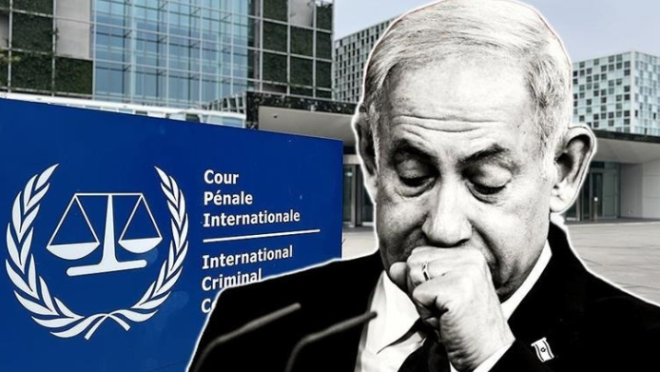Why ICC isn't taking actions against Netanyahu: Realities of global power structure
Why ICC isn't taking actions against Netanyahu: Realities of global power structure

In light of the recent onslaught of airstrikes on Gaza, we look to the international community not just for pity condemnations but for actions. The International Criminal Court already imposed an arrest warrant for Israel’s prime minister on 21st November 2024, yet Netanyahu is seen travelling to the US congress, meeting the president, and attending other diplomatic missions without any regard for the threat of being arrested because realistically, there is no such threat.
Given the circumstances, it is quite fair to ask ourselves, what is the purpose of having a court that can not enforce the laws ratified by the UN itself? Why does the world need such a body if it cannot act when it is supposed to?
Formation
The idea for an independent international body to prosecute war crimes and crimes against humanity had started from the inception of the Nuremberg trials in 1946 for perpetrators of the Holocaust. The international criminal tribunal since then had been formed many times to prosecute crimes that occurred in former Yugoslavia and Rwanda.
The court we see in The Hague today was officially established on 1 July 2002, when the required 60 countries ratified a treaty to call for its existence. The courts, however, have a very limited and specified jurisdiction for the crimes it has authority to prosecute. These are genocide, crimes against humanity, war crimes, and crimes of aggression.
Since its inception, it has been used to carry out the prosecution of several high-profile cases, notably in the Democratic Republic of Congo, the Central African Republic, and Uganda, where individuals were tried and found guilty of charges of rape, violence, and crimes against humanity.
Authority
The member states that fall under its jurisdiction are known as the states that are parties to the Rome Statute, which refers to the legally binding principle that allows the court to prosecute individuals committing such crimes in those states.
There is a considerable lack of authority in those states which are not party to The Rome Statute. The notable nations that are not under the jurisdiction are the USA, the UK and The Russian Federation, all of whom are permanent members of the UN Security Council.
The UN Security council on the otherhand can direct the ICC to investigate anyone or any entity it deems appropriate.
This very loophole gives the old colonial masters and the newer ones a blank check to act outside of the court’s authority and even influence the court via the security council. The courts cannot have influence or have any say in any of the matters of these nations.
Consequently, Israel is also one such state that does not conform to The Roman Statute.
Lack of meaningful power
The ICC has no police or military to carry out arrests. It depends on member states to detain and extradite individuals. If a country refuses to cooperate, the ICC has no direct power to enforce its warrants.
The United States itself has its own law prohibiting the government from adhering to any decisions made by the ICC. The American Servicemembers’ Protection Act limits the scope for US officials to comply to any authority of the ICC.
This means that the court, which was established to uphold the values of humanity and justice, can do nothing but be a bystander whenever the big players are involved.
Hypocrisy in enforcing laws
Although the courts do not have jurisdiction in enforcing laws outside of member states, it recently arrested former President of the Philippines Rodrigo Duterte. The Philippines withdrew from The Roman Statute, yet within Phillippine’s own legal framework there remains clauses stipulating adherence to the ICC. This meant the current government allowed the ICC to exert the warrant and Duterte was arrested by Philippine authorities on 11 March 2025, based on an ICC warrant accusing him of crimes against humanity related to his administration’s “war on drugs.”
The critics cite this as a blatant misuse of international influence and political ploy, as the current government used the ICC’s standings to enforce a warrant that it did not have the authority to issue in the first place.
In the case of Netanyahu, the case is more clear. Both Israel and the US do not abide by The Roman Statute and therefore are outside any authority of the courts. Any nation can willingly decide to accept or decline the Roman Statute which means there is also no pressure from the UN itself to establish ICC’s legitimacy over its member states.
The veil of Western liberal values has been lifted quite dramatically by the recent attacks on Gaza. Yet again, Netanyahu violated the ceasefire agreement he himself signed and US weapons and ammunition are being used on a daily basis to kill thousands.
The Muslim nations surrounding it can do virtually nothing but spit out meaningless words and the ICC which prides itself on upholding humanity’s conscience is once again observing silence to a genocide happening right under its nose, as it did in the case of the Bosnian genocide, just as it does in the case of China’s Uyghur Muslims.
Perhaps the only use for the courts is limited to roaming around African countries, trying to stop the chaos that was started by its colonial overlords.


